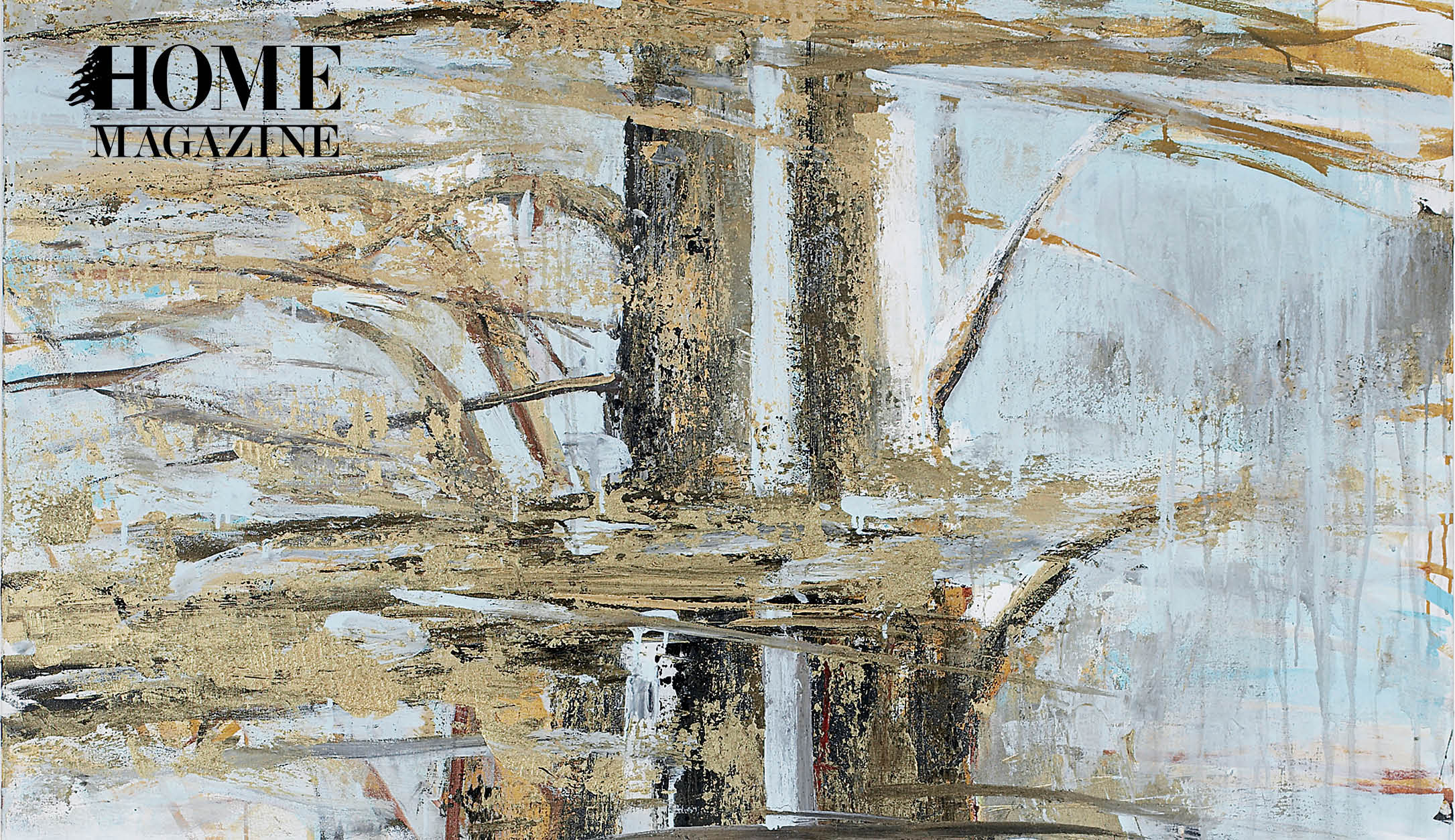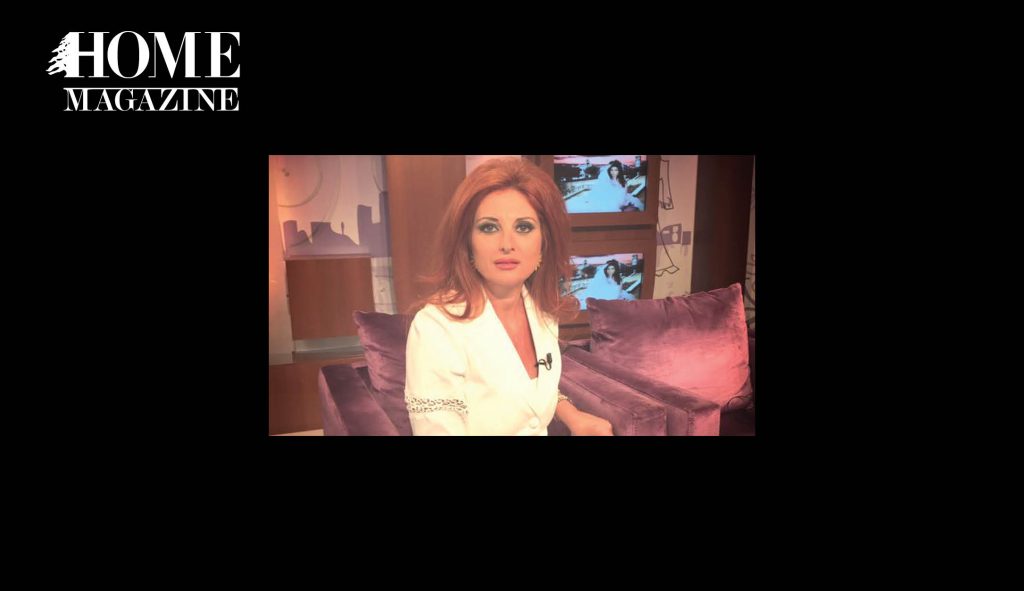I once heard the cedar tree is the same length below ground as it is above ground, and I thought back then, and still do, that this is once of the most beautiful metaphors I have ever heard.
Depth
No matter how light a magazine can be, as publishers and journalists, we have the responsibility to go as deep as we go above and beyond.
At HOME, we strive to feed every article with face-to-face interviews and lengthy hours to understand, to research, to observe, to give our stories timeless meaning and to make it time well spent for our readers. Just as the late two-time Pulitzer prize-winning journalist Anthony Shadid “never closed his notebook as long as someone was still talking” (p. 75), we too want to understand people’s challenges and hear the stories that made them. We are after the founders’ spirit and passion for every initiative and institution; we are in pursuit of the original visionaries’ road map. We want to look into people’s heads and hearts. This is our editorial line.
Don’t we all need deep roots to go higher? Don’t we need to be well grounded to leap farther? Don’t we need to penetrate the self to give more, love more, do more? Don’t we need to reflect to be able to assess? Appreciate? Even enjoy?
I rejoice in those moments spent planning each issue, considering our original mix of the many exceptional Lebanese we profile. I take pleasure in following my own natural curiosity, my cultural curiosity. There is rarely anything uninteresting to my eye. Every place and person interviewed creates in me new amazement, a sense of awe, an “aha” moment. Through them, I am renewed. I find poetry in people’s lives and from them, we, as an editorial team, build literature.
We want HOME to entertain, but we aim deeper.
Peace journalism
We practice peace journalism (p.143). Every sentence is written to bring people together rather than separate them, to find common denominators.
We don’t shy away from talking about our differences; we might even highlight them, but with the aim of humanizing opposing parties, constructing versus destructing, uniting rather than dividing.
We use words responsibly because we know that words can build, and words can destroy; words can bring people together or divide them irrevocably. Words can lift others up or bring them down.
Like all good journalists, we fact-check our stories, striving for accuracy. But we look through another lens: the lens of peace. Every word is read repeatedly to also consider its impact, the consequences of our reporting. Does it serve reconciliation? Is it solution oriented? Does it create unity and harmony?
We have been practicing peace journalism since day one, but now we have labeled it. As eminent peace scholar Dr. Johan Galtung explained, this concept of journalism is “supportive of peace initiatives and peacemakers, without compromising the basic principles of good journalism.” HOME gives peacemakers a voice and deliberately resists the “us vs. them” reporting mentality. We practice peace journalism rather than victory journalism.

Just as the branches of cedars mingle and merge into a thick forest, branches grow into neighboring trees, we hope to connect a few dots, uniting the rich diversity that is Lebanon for the common good.
Analytical, critical
I can’t take credit for pushing an editorial line that embraces analytical thinking;
I come from a household where my father, Alfred Bitar, the industrialist and businessman, taught me the best lessons about journalism! Back then, little did he know what I would be doing with this information.
“Don’t ever applaud a speech before it is over; listen to the end and only applaud if you like what you hear.” Many of us are conditioned to act in certain ways, to support certain people without raising a single question. But do we really want to delegate others to think for us, to lend our voice of support without questioning?
“Be vigilant for what the director wants you to see!” Dad would say when we watched a movie. “Consider who is behind the camera.” These remarks would extend to real life situations in which he needed to guide me to look at an issue from different perspectives. “Read between the lines;” God knows how much more we need to in this politically polarized society.
My admiration goes for the clear-eyed thinking of many of the Lebanese, including my father, who in times of crisis—more than 40 years of war, displacement, economical complexity, currency devaluation, aggravation of all sorts; bombs and fires (my father’s factory burned 14 times)—still thought critically, independently, and by this defeated the war.
In a colorful way, Dad would continue, “People go to a football game wearing a t-shirt supporting one team and a hat bearing its color. This gives little space to enjoy the performance of both teams. Their stance is chosen ahead of time, no matter what happens on the field. Imagine how awkward it would be to clap for the opposing team, even when they play better than your own!” HOME Magazine invites you to enjoy every game with fresh eyes.
“You must ask the right question and insist on being asked the right question as well.” His principle is often confirmed by renowned journalists, “the power of the question,” as the remarkable Raghida Dergham (p. 23) calls it.
The role
In today’s world, fake news, biased reporting, misinformation and propaganda rule. The responsibility has shifted to the consumer to be more critical, although the media can play a greater role in educating its audiences and diffusing information responsibly. It is well understood that it is easier to sustain as a journalist than as an institution with the strategy of delivering qualitative, noncommercial news in this financially struggling industry.
In this issue of HOME, we have a photo essay on An-Nahar (p. 61), which showcases the legacy of its editor-in-chief and publisher Ghassan Tueni. In historian and journalist Samir Kassir’s words, Tueni’s office had been “a meeting place for the Arab establishment, which used it to make and unmake governments, and the intelligentsia.”
Beirut was the center of Arab publishing, a place where artists, intellectuals, politicians in exile and journalists met and mingled, where ideas flowed freely.
We want to go back to this role for Lebanon, a haven for leadership and critical thinking.
One day, while hiking by a cedar tree, I stopped and stood beneath HER. She was the giant kind, estimated to be 3,000 years old. I felt so small, so insignificant, my brief life passing before HER. Imagine what she had seen already and what she will be seeing in the thousands of years to come. It is humbling to feel the course of time and when we do, we start appreciating more and more the servant leaders we have around us.
Like this tree, I hope that my life and our work at HOME can be useful to others who pass by in need of shade and a place for reflection.
What we do at HOME Magazine is a prayer for the land carrying this cedar tree; we hope to be worthy of it. Our work is a prayer for a better HOME, a better Lebanon.
Patricia Bitar Cherfan
Founder and editor-in-chief

































